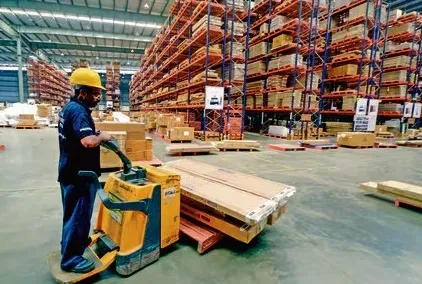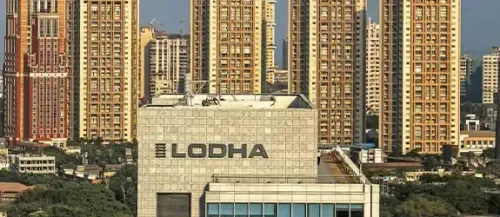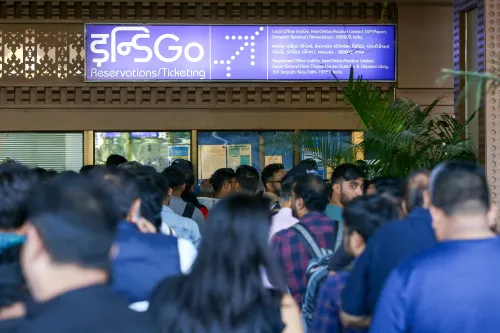Is Manufacturing Space Leasing in India at an All-Time High for January to June?

Synopsis
Key Takeaways
- Record leasing of 9 million sq ft in H1 2025
- 38% increase year-on-year
- Six times pre-pandemic levels
- Grade A warehousing comprises 55% of stock
- Major cities account for 90% of demand
Mumbai, Aug 19 (NationPress) The leasing of manufacturing space throughout India has achieved a remarkable milestone in the January-June timeframe, with a staggering 9 million square feet in transactions, according to a report released on Tuesday.
This marks a significant 38 percent increase year-on-year compared to the first half of 2024, which saw 6.5 million sq ft. Notably, this figure is six times greater than the pre-pandemic levels recorded in the first half of 2019 (1.6 million sq ft), as highlighted in a JLL report.
The infrastructure sector continues to flourish, with Grade A warehousing now making up 55 percent of the total 463 million sq ft stock across India's eight key cities.
During H1 2025, the market experienced a net absorption of 25 million sq ft, with projections for the end of the year expected to reach between 55-57 million sq ft—a noteworthy 12-15 percent increase from the 50 million sq ft absorbed in 2024.
“India’s industrial real estate market is undergoing a profound structural transformation, as evidenced by manufacturing leases constituting 24 percent of all transactions in H1 2025,” stated Yogesh Shevade, Head of Industrial and Logistics at JLL India.
The geographic distribution is equally informative, with Bengaluru, Pune, NCR Delhi, Chennai, and Mumbai collectively accounting for 90 percent of the country’s net demand, Shevade noted.
Bengaluru has taken the lead in net demand for H1 2025, followed closely by Pune, NCR Delhi, Chennai, and Mumbai. These five strategic locations represent 90 percent of India's total net demand, underscoring their vital role in the country's industrial and logistics framework.
The third-party logistics industry continues to lead demand, making up 28 percent, followed closely by manufacturing at 24 percent, which includes automotive, engineering, electronics, and white goods sectors.
Manufacturing firms are increasingly embracing asset-light strategies, optimizing capital use while capitalizing on turnkey facilities with pre-secured regulatory approvals.
The rising demand for high-quality manufacturing spaces is propelling Built-to-Suit (BTS) transactions, which command premium rents of 20-25 percent above standard warehousing due to tenant-specific operational requirements, according to the report.










